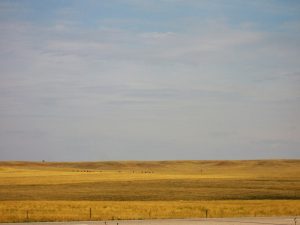 2 Peter 1:20-21
2 Peter 1:20-21
Knowing this first of all, that no prophecy of Scripture comes from someone’s own interpretation. For no prophecy was ever produced by the will of man, but men spoke from God as they were carried along by the Holy Spirit (ESV).
One of the great questions of humanity involves the study of knowledge. “How do I know?” and “How do I know that I know?” There are only a few basic answers to that question, such as “mankind can’t know,” or “mankind can know through some mystical process,” or mankind has all the ability to know,” or “mankind can only know truly through revelation.” All the first three answers are defective or insufficient for many reasons, which are outside of our theme in this article. What remains is the Biblical position that we can know because God has spoken. This brings us to the place of the Holy Spirit in God revealing himself to mankind.
Revelation has two parts: general and special. General revelation is God revealing himself in creation (Psalm 19:1-6). Special revelation is God revealing himself by speaking to mankind. God chose some of that special revelation to be permanently recorded in written form to speak with God’s authority. The Lord does this so that we might know his person, his will, and his saving activity. This written record God calls the Scriptures, and we often call it the Bible, the Book.
Our focus in this article is the activity of the Holy Spirit of God in giving us the written message. As we begin, it is wise to state that we will encounter mystery here. The Spirit does not answer all our questions in the Bible. In it he gives us true truth, though not exhaustive truth, for a good reason (John 21:25). But though we cannot know fully, we have all we need to know. Consider an example.
The games of the great chess grandmasters have been preserved for people to enjoy and study. If you have some understanding of chess, you can replay them and grasp to some degree how they achieved victory. But sometimes it is a marvel how they could discern the possibilities in a position and bring out its potential sometimes through a sequence of many moves. Watch the movie, Searching for Bobby Fischer, if you want to see some of this. In a similar way, when we come to the Holy Spirit and the Holy Scriptures, we can learn what he has done, but he has not made known the full process of how the Scriptures were written. We will have to stop where the Scriptures stop. Be content that the Spirit knows, even though you do not.
The Scriptures are a joint product of the Holy Spirit and people. We see this divine-human interaction in many areas of Biblical teaching.
- Christ has two natures (one divine and one human) in his one person. Both are clearly attested in the Scriptures, though the exact nature of their interaction is beyond our understanding.
- God’s sovereignty interacts with human responsibility in salvation. God clearly chooses people to salvation, yet everyone who is saved repents and believes.
- The mission of evangelism is another divine-human interaction. Our task is to tell others the good news, but unless the Holy Spirit regenerates, all our evangelistic efforts fail.
- As we shall see, the whole area of growth in grace involves divine-human interaction.
Each of these divine-human interactions varies in different ways. But the product of the Scriptures is closer in kind to the relationship between Christ’s two natures than the others, all of which involve human sin.
The apostolic teaching is that “men spoke from God” or “holy men of God spoke”, as the NKJV reads following the textual variant. In either case, we are clearly taught that the Scriptures came through human instrumentality: “men spoke”. We see this same assertion made in other places: David (Luke 20:42; Ac 2:34), Isaiah (John 12:39), Joel (Ac 2:16), and “the word of the prophets” with Amos in mind (Acts 15:15). Compare also Matthew 13:14; 15:7; 22:43; Mark 12:36. Yet as these men spoke, God spoke through them (Matthew 2:17; 3:3; 13:35; 21:4; Acts 4:25). We can also see this in the differences of style among the various human writers. Ezekiel does not sound the same as Moses, nor does Paul sound like John. Yet in all, we read the same consistent teaching, sense the same heart of the master author, and are presented with the same zeal for God’s glory in the face of Christ. All this occurred in about forty human writers over the space of 1600 years! The observable facts of Scripture attest to this divine-human interaction.
This should lead us to worship the Lord. “Who are you, Almighty God, that you can work in human hearts in such a magnificent way?”
Grace and peace, David

 Genesis 43:15-34
Genesis 43:15-34 Psalm 104:29-30
Psalm 104:29-30 Genesis 43:1-14
Genesis 43:1-14 Matthew 22:15-40
Matthew 22:15-40 Isaiah 31:1
Isaiah 31:1 Psalm 19:12-14
Psalm 19:12-14 Genesis 43:1-14
Genesis 43:1-14 Exalt the Lord our God, and worship at his holy mountain; for the Lord our God is holy! (Psalm 99:9 ESV).
Exalt the Lord our God, and worship at his holy mountain; for the Lord our God is holy! (Psalm 99:9 ESV).